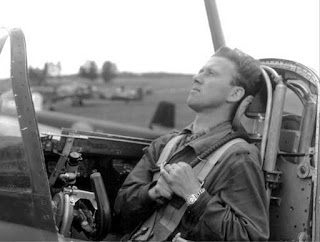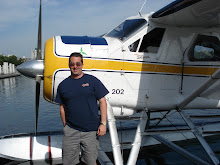Olle Klinker 1921-2007

After 1 year of military service, Klinker went on to obtain an MS in Aeronautical Engineering from the Royal Institute of Technology in 1946. He joined SAAB, a Swedish aircraft company, in 1947 and was soon testing the J21A, a twin-boomed, piston-powered, pusher fighter and the J21R, a jet-powered version. Klinker served as engineering test pilot and test leader on most SAAB fighter designs. He tested the SAAB 201, which incorporated a swept-wing design later used on the J29 Turman, a fighter contemporary of the F-86 Sabre and MiG-15. The SAAB 210 was a special challenge for Klinker. He made over 500 flights in the "Little Draken" built to test the completely unknown low-speed characteristics of the double-delta wing.
This unique wing would later be used on the Anglo-French Concorde, the Soviet Tu-144, and the American Space Shuttle. From 1956 to 1964, Klinker served as experimental and engineering test pilot on the J35 Draken--Sweden's first supersonic fighter. He next tested the J37 Viggen, a canard-winged fighter, which today provides Sweden's frontline defense from very short "highway" strips. In 1968, he became manager of the Flight Test Department of SAAB, and in 1978 he was named Vice President and directed all aircraft division operations including ground test, laboratories, and simulators. Klinker has received numerous awards, including a gold medal for the most distinguished aviation achievement in Sweden in 1949.
Jacqueline Cochran presented the award to him in Stockholm. In addition to the Doolittle Award of 1985, he also received SETP's Tenhoff Award in 1968. At the time of his retirement in 1986, Klinker had flown every SAAB aircraft then in the air. SAAB-Scania still called on him for advice in the development of their next fighter, the J39 Gripen.



<< Home